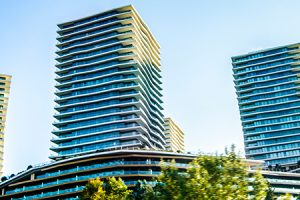
Energy efficiency in buildings is considered a priority by various countries, and Canada is one of them
In many developed countries energy codes have been identified as the single best way to ensure buildings are energy efficient. Canada has seriously looked at the new code for application of clean and low-carbon energy in new buildings improving efficiency standards for different elements using, for example, triple-paned windows, lighting, building envelope, insulation, heating, ventilation and air-conditioning, among others.
The goal is to reduce the costs for energy consumption and also greenhouse gas emissions. The last state joining this initiative is Alberta which is responsible for 19 megatonnes of gas emissions from buildings in 2014. The B.C. government also supported this initiative and included promising commitments in regard with sustainability in the building sector. The first milestones are the establishment of a zero energy target for new buildings by 2032 and the development of an energy “step code” for local governments. According to the new Zero Emissions Building Plan in B.C., within this coming decade near-zero emissions residential and commercial buildings will be the new reality in Vancouver.
The material used in construction can also help in building more energy efficient and sustainable houses. This is the example of Owens Corning, a leading global producer of residential and commercial insulation materials, who launched the ComfortCertified Program which offers the combined expertise related to energy saving in new buildings. The idea is that the initial inefficiencies, which can last for decades, must be energy efficient from the early stage of the building life cycle. This will be not only more effective, but less expensive in the long run. This is the best investment in the quality of our environment.
For this purpose the “2030 Challenge” is the guideline for construction in Canada under the highest standards of excellence. The goal is to implement an integrated design process for any type of buildings which consume at least 60% less fossil fuel energy than buildings of that type in the region. The traditional energy consumption must reach 90% less by 2025, and by 2030 energy consumption in buildings must be 100% carbon neutral.
Sources:
- Best practices for new buildings
- Alberta finally adopts new national building code for energy efficiency
- Owens Corning launches building program aimed at affordability, sustainability and efficiency
- Taking green buildings to the next level in B.C.
- Vancouver Energy Efficient Home Plan A Blueprint For All Canada













